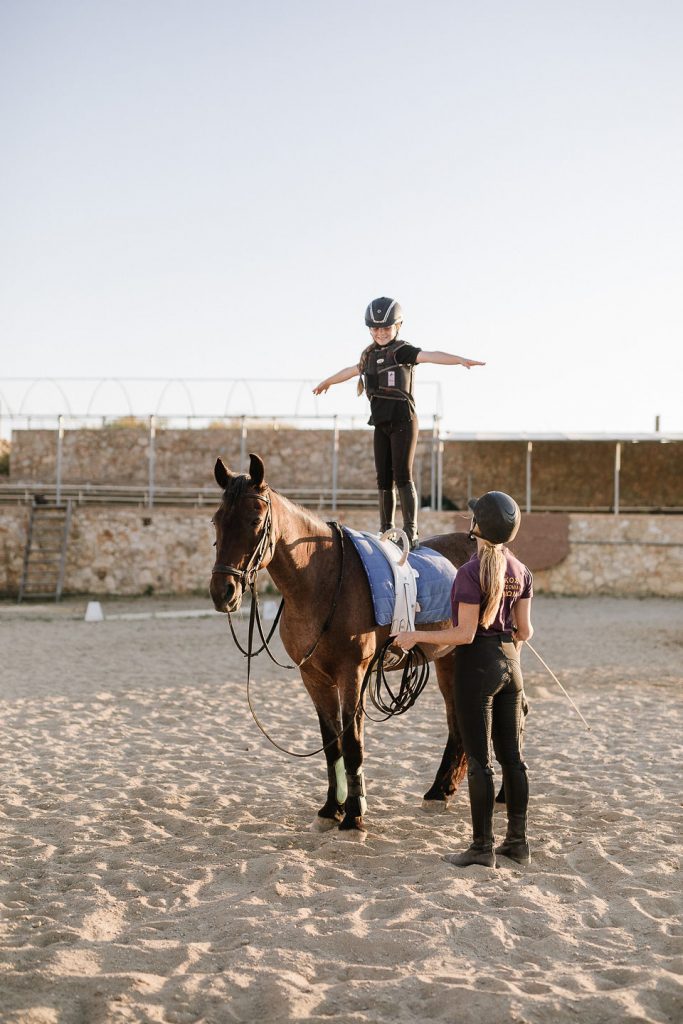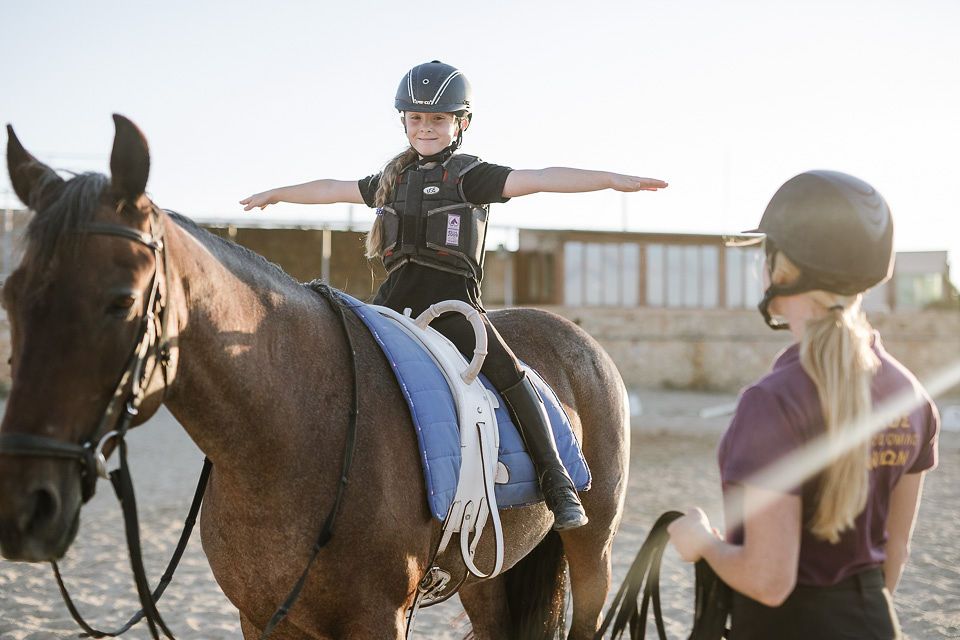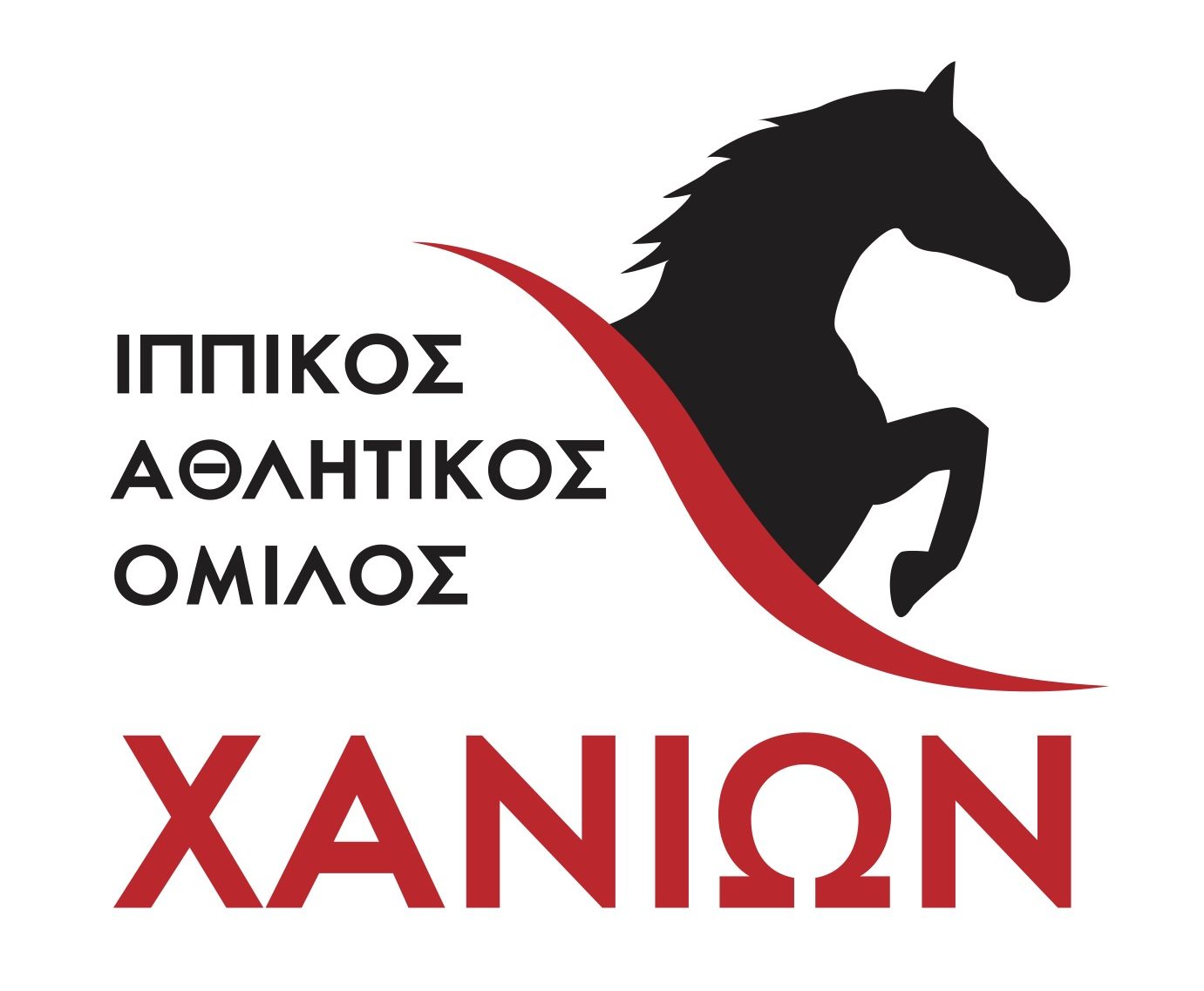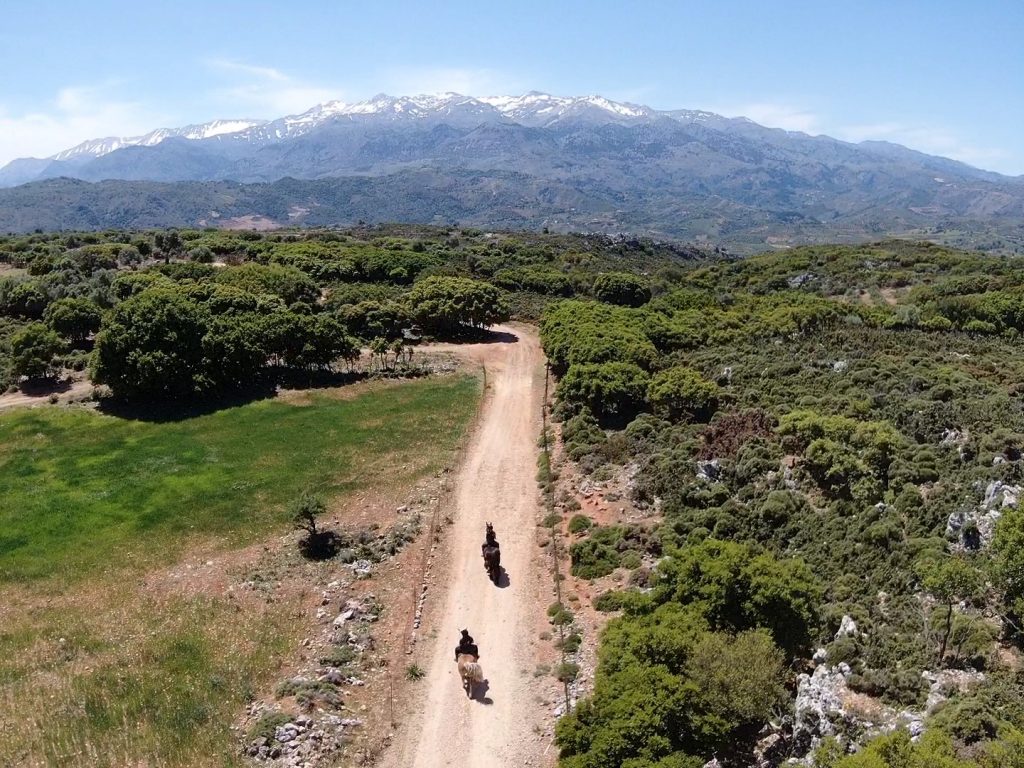

Hippotherapy
Hippotherapy is the application of horse riding for persons with disabilities with the main purpose of rehabilitation of the patient, and the improvement of his health and quality of life. The logic in this case becomes a therapeutic medium. It is implemented under specific conditions, such as specially trained logic, specially modified environment, specialized scientific personnel, special equipment, etc.
Horse therapy is the most specialized part of therapeutic riding. It is a purely therapeutic session and concerns rehabilitation scientists (physiotherapists, occupational therapists, speech therapists, etc.). It is about moving a rehabilitation session, instead of the hall, to the arena and instead of using some other therapeutic tools, the horse is used. In this case the only thing that differs from a conventional rehabilitation session is the venue (arena) and the medium (horse). Also, all the conditions (assessment, treatment protocol, treatment goals, etc.) required in the clinic are also met. Hippotherapy is an internationally recognized and constantly developing treatment method for people with disabilities, practiced worldwide by rehabilitation scientists. Through thorough research and work, it has now been scientifically established that the correct application of hippotherapy by specialized therapists has particularly important benefits in rehabilitation, whether it is kinetic or special training.
Horse therapy should only be applied by qualified scientists and under no circumstances by volunteers. This is the only way to achieve the safety and quality of the sessions. In some countries, when hippotherapy is applied under conditions, it is included in the national health system and prescribed by state funds.
According to the international literature some of the indications of Hippotherapy are:
* Autism & Pervasive Developmental Disorders, ADHD, Rett Syndrome, Asperger Syndrome
* Cerebral palsy (all types)
* Psychomotor retardation
* Mental retardation
* Down syndrome
* Muscular dystrophy (various types)
* Spina bifida
* Spinal cord injuries
* Multiple Sclerosis
* Stroke
* Blindness
* Deafness
* Learning difficulties
* Behavioral problems
* Psychological or Psychiatric problems
* Various syndromes (Agelman, Okamoto, etc.)
The therapeutic effects also include:
Improvement of posture and balance, improvement of neuromuscular control and muscle tone, improvement of walking, coordination, orientation (spatial, temporal), improvement of sensorimotor function, improvement of gross and fine motor skills, psychomotor development, acquisition of new cognitive skills, cultivation of communication skills and socialization, speech improvement, etc.
In addition to its unique contribution to the rehabilitation of ailments, therapeutic riding also has a sporting character. Those who wish, after special preparation, can take part in local and international competitions in equestrian skills, such as the Paralympics and the Special Olympics, etc. By participating in sports competitions, they have the opportunity to show the abilities they have acquired, to develop sociability and the spirit of team effort, to become more outgoing and cooperative and to give a significant moral satisfaction to their parents, who support their efforts with dedication for progress.

